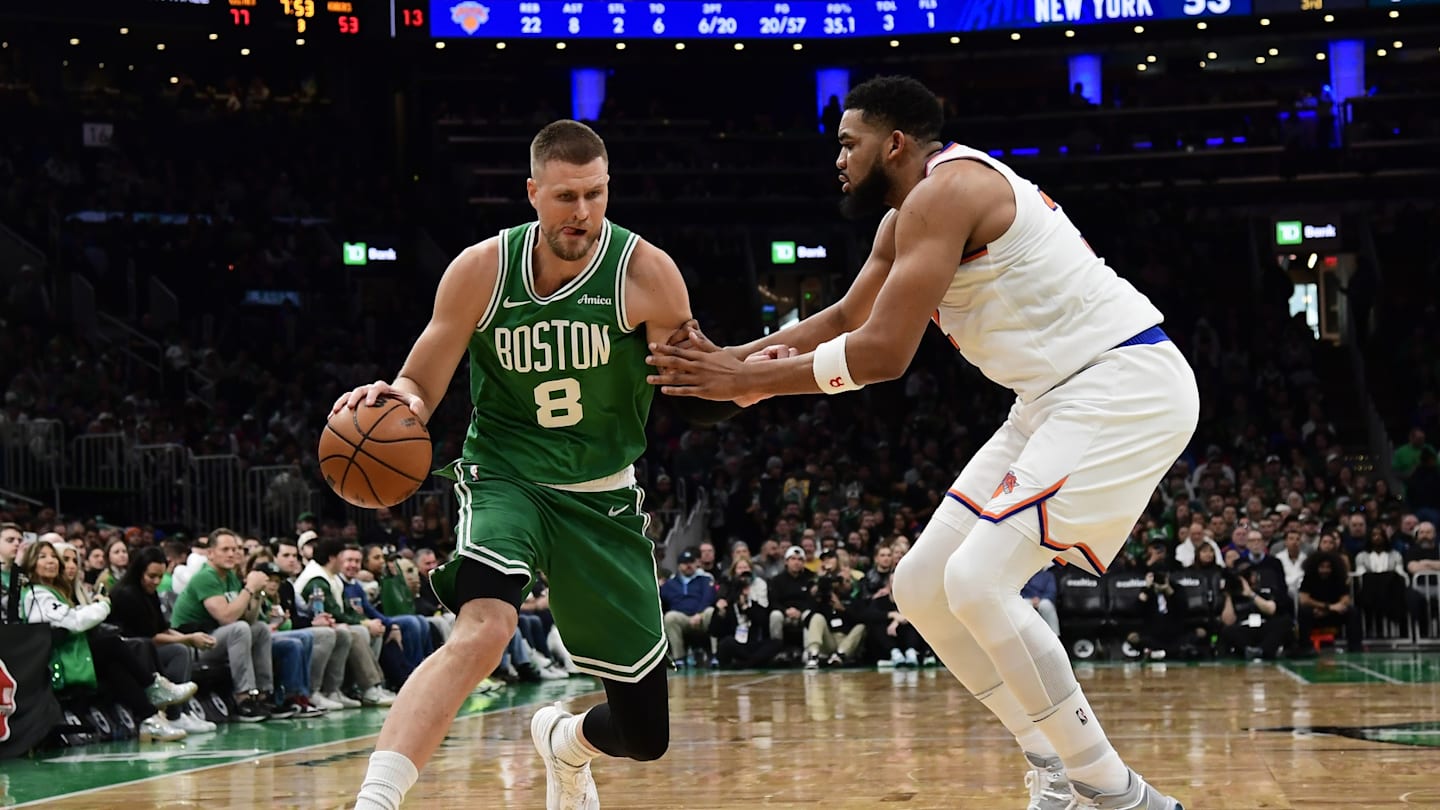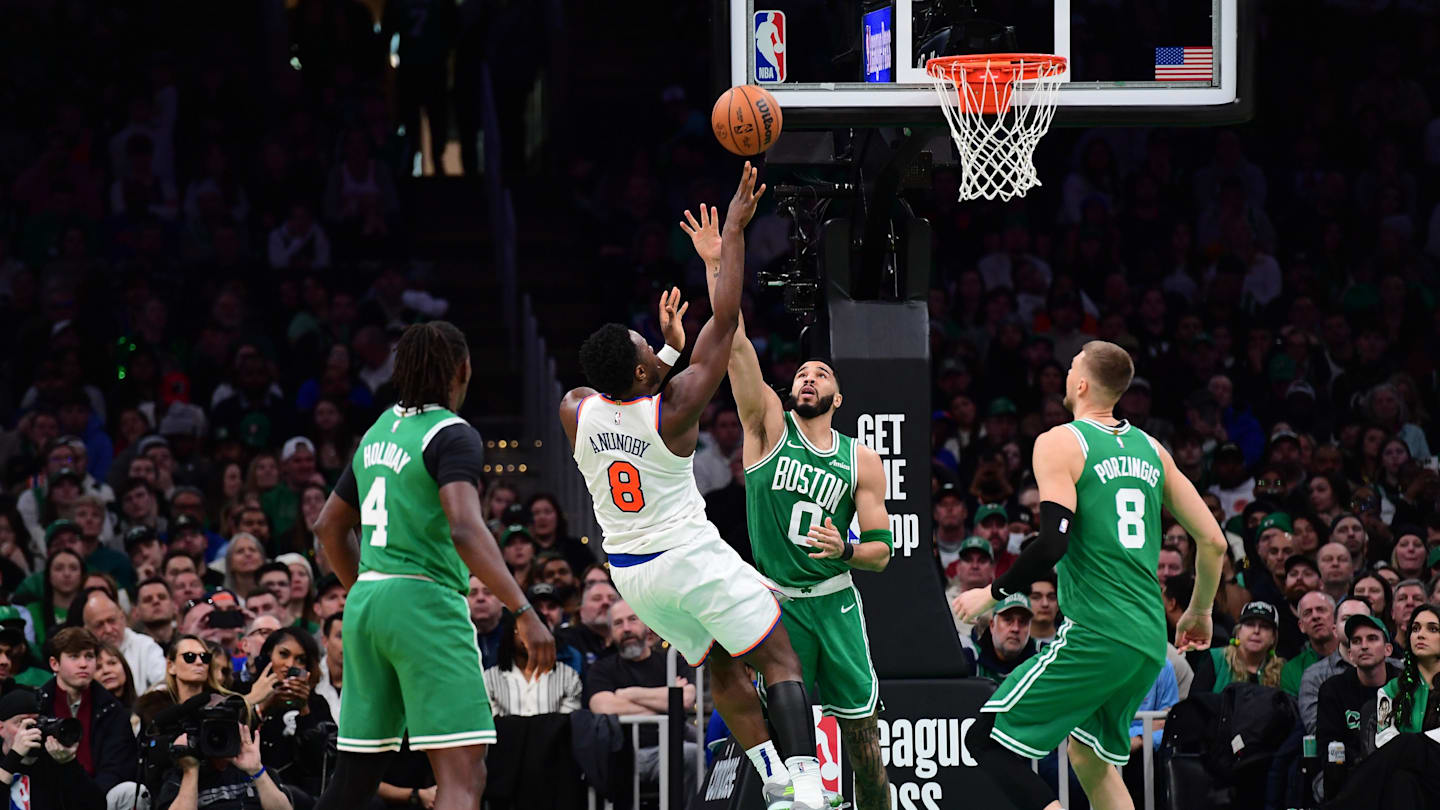The Houston Rockets Are the NBA’s Most Fascinating Trade Team

No matter how you define the word “fascinating,” in all its broad subjectivity, the Houston Rockets are easily the most fascinating team in the NBA. Already pretty good and very young—with restless ownership, demanding coaches, an abundance of intriguing prospects, and a buffet of delicious trade chips—the Rockets enter this season with inflated ambitions and myriad resources.
Rockets owner Tilman Fertitta made headlines last week by saying, “There’s no deeper team in the NBA than us,” and, honestly, it’s a fair statement. The depth chart is bursting at the seams with deserving players at every position who make a play-in appearance (and possibly something more) feel plenty realistic.
This is a blessing and a curse. The pros include lineup versatility, various insurance policies, and an ability to inject fresh, capable legs on a back-to-back. The cons are positional overlap, ambiguous role definition, and stunted development. And right now, Houston has a whole bunch of good players who could really use more time to develop. Here’s a list, in chronological order, of everyone on Houston’s roster who was drafted since Daryl Morey left the organization in 2021:
- Jalen Green (currently 22 years old, second pick in 2021)
- Alperen Sengun (22 years old, 16th pick in 2021—acquired via trade)
- Jabari Smith Jr. (21 years old, third pick in 2022)
- Tari Eason (23 years old, 17th pick in 2022)
- Amen Thompson (21 years old, fourth pick in 2023)
- Cam Whitmore (20 years old, 20th pick in 2023)
- Reed Sheppard (20 years old, third pick in 2024)
This may be the most impressive collection of young talent in the NBA. It’s also, remarkably, half the entire team—an attractive stockpile of intriguing, high-upside talent that ranges from “good” to “potential All-Star?” and beyond. That’s a nice problem to have; nonetheless, it qualifies as a problem. Each one is still, in some sense, trying to prove himself in the NBA. They all want minutes. They all want the ball. Nearly all have reason to believe they can and should be Houston’s best player. That type of opportunity can’t exist for everyone, though. Sacrifice is necessary, and it’s too early to say which pieces definitively fit together or whose skill set is incompatible with the bigger picture in a winning environment.
The Rockets’ short-term future is a mystery box that begs two questions: When will Houston press the eject button on this youth movement and hyper-blast itself toward the top of the Western Conference? And, conversely, what if general manager Rafael Stone never has to? From a front office perspective, the breadth of possibility here is beyond what any other organization has to wrap its arms around. It’s a headache with endless options and numerous antidotes.
The Rockets have enough picks (four of their own unprotected first-rounders, four swaps, and a couple of unprotected firsts from the Phoenix Suns) and winning mid-career veterans on movable contracts to include in any blockbuster trade for a trajectory-altering superstar.
If not that, they can consolidate the roster while keeping most of their core intact. Or follow the Oklahoma City Thunder’s path and focus more on gathering evidence and seeing how everyone looks in a playoff setting before excavating the fertile ground they tilled for several years.
The financial component complicates things but not to an unmanageable degree. All seven prospects listed above are currently signed to rookie-scale deals that will eventually turn into very expensive second contracts. Green and Sengun are extension eligible today. Smith and Eason are eligible for an extension next summer, followed by Whitmore and Thompson the year after that. This rebuild is about to get extremely costly, and that’s before we address the veteran leaders who helped Houston go from 22 wins in 2023 to 41 wins in 2024.
In the short term, Fred VanVleet and Dillon Brooks are too useful to cede any part in Udoka’s rotation for the sake of a much younger teammate’s development. Steven Adams is also here as the third-highest-paid player: a commanding, tough, humongous presence who, when healthy, can reshape his team’s on-court identity without stepping on anybody’s toes. (Sidebar: If the Rockets want to lead the NBA in offensive rebound rate again without damaging last year’s best transition defense, they probably can. Eason, Adams, and Sengun are the best of the best at gobbling up their team’s missed shots.)
By not signing Sengun to a massive extension now, the Rockets can take advantage of his smaller cap hold to create way more flexibility next summer, when VanVleet’s $44.8 million team option can come off the books. (Green is also extension eligible, but his cap hold is still over $30 million; Brooks is under contract through 2027, but his deal descends annually and shouldn’t be hard to move.)
The Rockets can play out the season, open up a ton of cap space, and become a major player in free agency without surrendering any significant assets in a trade. Clint Capela, Brook Lopez, and Myles Turner (three rim-protecting centers who may be necessary beside Sengun) will be unrestricted free agents. Rudy Gobert, Naz Reid, Julius Randle, Brandon Ingram, and Aaron Gordon—a fascinating (pie-in-the-sky) possibility given how well he complements Sengun prototype Nikola Jokic—are all unsigned and extension eligible with player options for next season. This isn’t to suggest any of these names are on Houston’s radar or make sense with a majority of its current roster—given Sengun’s peculiar skill set and what’s specifically necessary to accentuate his strengths and cover up his weaknesses—but cap space can also create an opportunity to absorb salary in a trade, opening up even more ways to build on whatever parts of this foundation Stone and Udoka deem sturdy enough to stand on.
And then there’s the big fish: Jimmy Butler, a 35-year-old Texas native who would dramatically raise Houston’s expectations and temperature. We’re a long way from Butler divorcing the Miami Heat. A split doesn’t feel inevitable, but it’s plenty realistic after Miami refused to extend its best player. Whether Houston acquires the six-time All-Star via a trade before this year’s February deadline (unlikely) or pounces in free agency, it is an intriguing destination for a player who’s still able to reach heights very few can.
Given Butler’s age and irritability, though, a move like that wouldn’t happen unless the Rockets were ready to contend. A more ideal target would be a star who provides a longer runway, which brings us to that eject button. If it wants, Houston has enough assets to construct the most appealing trade package in the league. From there, any organization that employs a disgruntled superstar and is looking to pivot toward a different era should listen when Stone calls.
If, for instance, the Suns flame out, enter Devin Booker, who turns 28 on October 30 and is under contract through 2028. (The Rockets already have one eye on the Suns, having acquired Phoenix’s draft picks from the Brooklyn Nets for the very purpose of shorting a precarious Suns era that’s on the verge of collapse.) If I were the Rockets, I’d be less inclined to fork over my most valuable assets for a 36-year-old Kevin Durant, who would seemingly also be available in this scenario. Booker, on the other hand, can shine as the stable scoring machine with playoff chops and Finals experience who makes sense in pretty much any lineup or system.
The Rockets don’t want to be hasty, but too much stasis can be its own beast, precipitating an undertow of deteriorating assets and unfulfilled talent and a sudden, frantic search for a lifeboat. In today’s NBA, windows open and shut in the blink of an eye, but the Rockets’ most important questions should be answered throughout this season. Some building blocks will step up, while others will disappoint.
Maybe Sheppard will be an immediate Rookie of the Year candidate who develops beautiful chemistry with Sengun. Maybe Smith will enjoy a third-year leap, hit 40 percent of his 3s, and establish himself as a two-way force. Maybe Thompson will look like a young Jrue Holiday. Maybe Sengun will look like a max player who can exist as the hub of a top-10 offense without giving too much up on the other end. Maybe Green (whose game is a sonic boom one moment and hits like the first sip of an energy drink—fizzy and saccharine, with an ephemeral jolt of caffeine that should be consumed only in moderation—the next) will be more consistent. Some pieces will look expendable, and others will become priceless.
This fluid situation and the marketplace are both interdependent. We know the Rockets can’t pay everyone, but we don’t know who stays, who goes, and how considerable their collective evolution will be over the next six months. Houston is still at the dawn of what may be a truly special time. But attached to all that hope and excitement is the stress of knowing just how tenuous the next steps might be.
Related
NBA: Mark Cuban says he would have asked for more…
Feb 13, 2025; Dallas, Texas, USA; Mark Cuban laughs during the second half of the game between the Dallas Mavericks and Miami Heat at American Airlines
NBA Scout Reveals Why Celtics Can Easily Beats Knicks in…
The Boston Celtics are one of the teams who are expected to be a contender at the end of the season. They are the defending NBA champions, so they feel like the
Nikola Jokić gives peak Nikola Jokić interview with Scott Van…
Nikola Jokić is still rewriting the record books — and treating it like just another day at the office. In a 149-141 overtime win over the Phoenix Suns
Knicks’ Struggles vs. NBA’s Elite Explained
The New York Knicks are one of the best teams in the NBA, but as of late, they have been defined more by their struggles than their triumphs.The Knicks are 0-7











